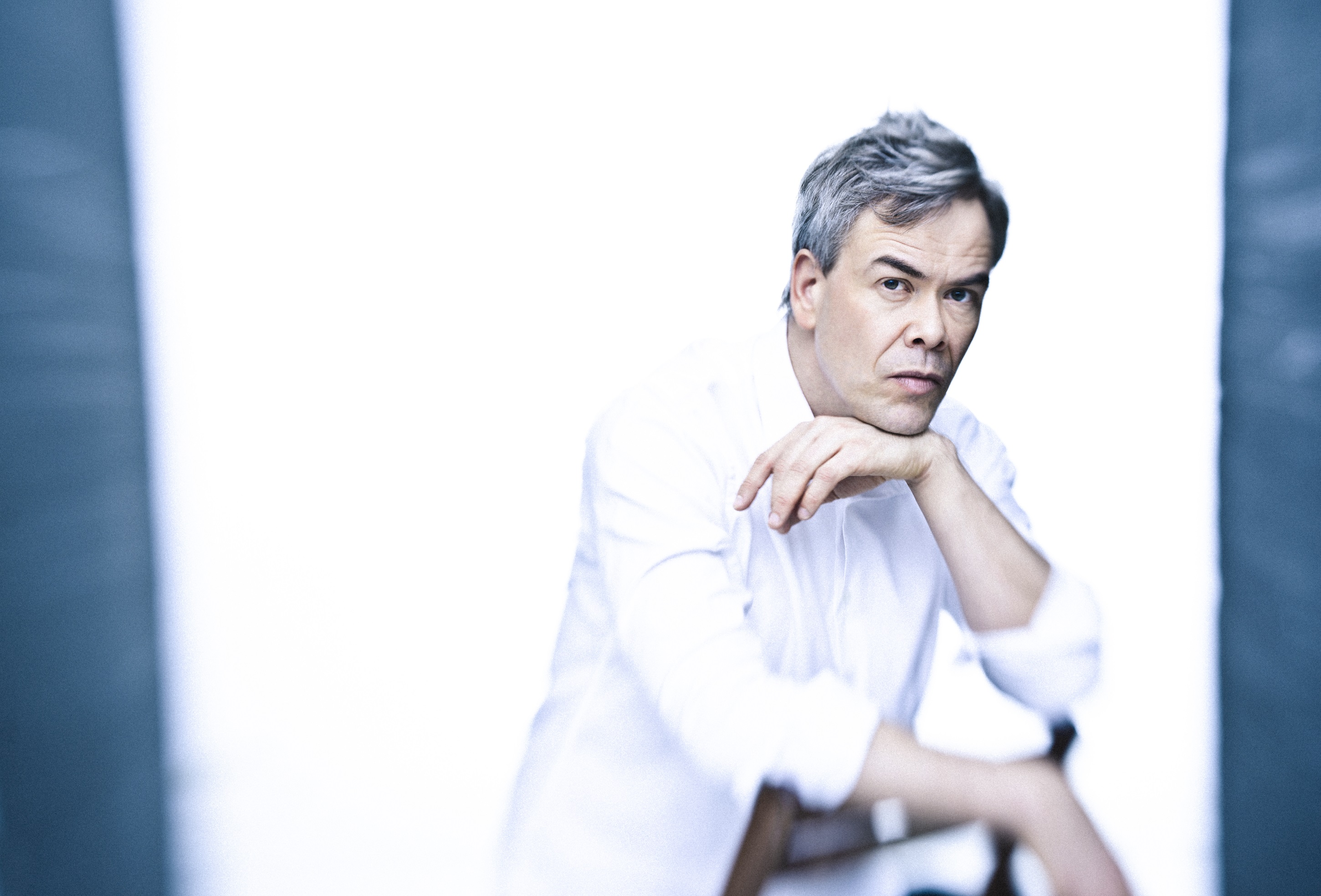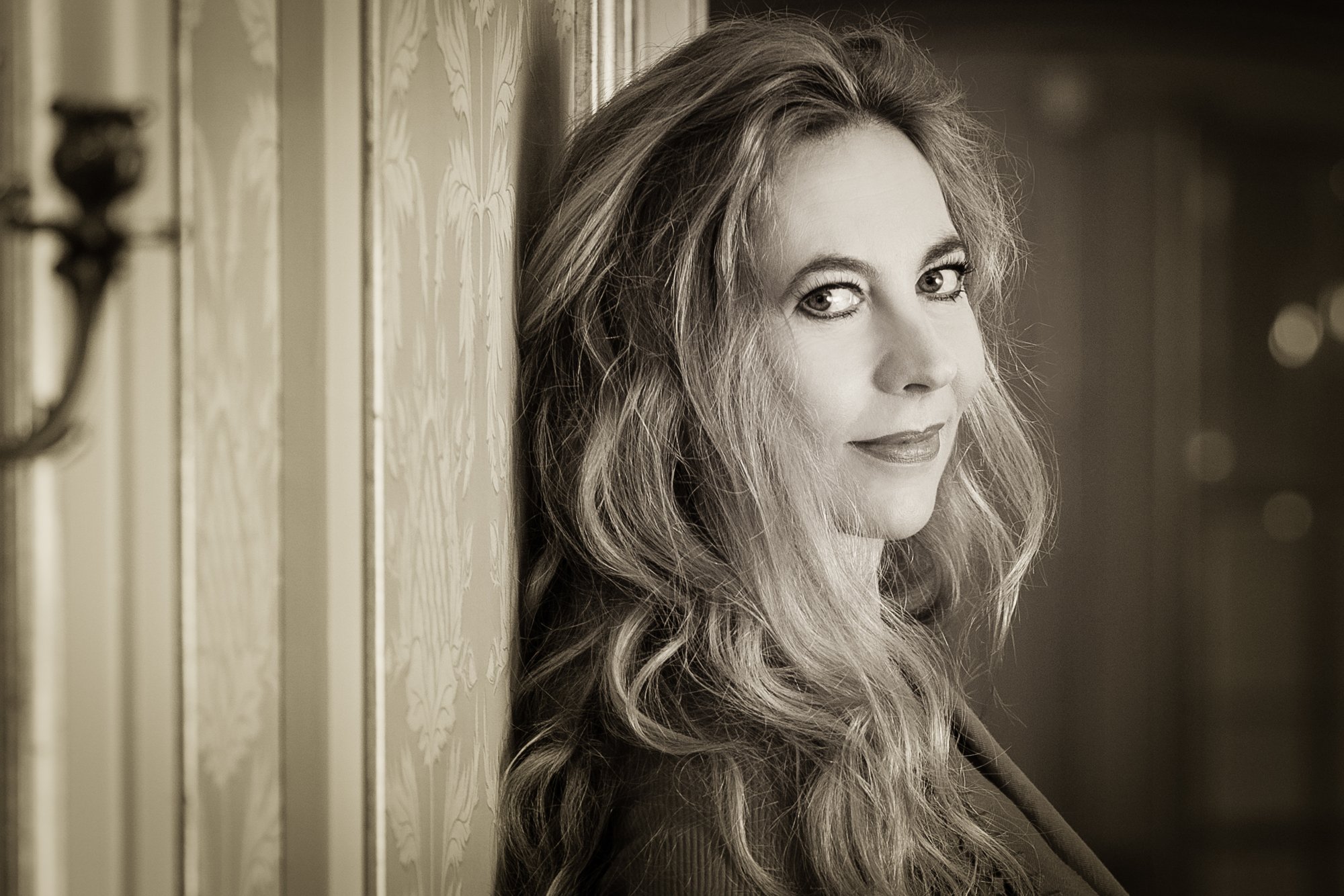Climax, ecstasy, light! - Skrjabins Prométhée
In the Friday concert on 12 November 2021, Hannu Lintu will conduct Sibelius and Prokofiev, and will close the evening with Alexander Skrjabin's Prométhée: a heaven-stirring 'symphony' of sound, rhythm and light. Let yourself be carried away by Skrjabin's untameable fantasy!

Ecstasy
Alexander Skrjabin brought heaven down to earth even without LSD. He made eroticism and ecstasy an essential part of his composing, and his audience would find themselves in higher spheres by enjoying his 'all-embracing' music. In the last years of his life, he worked on his Mysterium, a megalomaniac, seven-day-a-night ritual in which choir, orchestra, piano, dance, feeling, decors, sculptures, colour and smell would merge into one whole. All this was to be performed, enacted and experienced in a purpose-built temple at the foot of the Himalayas (the land for which the composer had already bought), after which the present, material world would disappear. Wagner's Gesamtkunstwerk Der Ring des Nibelungen, which was also good for four full evenings in the theatre, was to be a little sober in comparison. But it never happened...
Climax
The piece that comes closest to Skrjabin's final vision is Prométhée, a twenty-minute long 'fire poem' for orchestra that ends in an ecstatic climax with a textless chorus. The piece was premiered in Moscow on 2 March 1911. Skrjabin himself, besides being a composer a world-famous pianist, played the piano part in the orchestra.
The music 'tells' of the development of human consciousness. Initially formless, it gradually manifests itself and ends up in a frenzied union with the cosmos, the 'all'. The harmonies are elusive from the very beginning, there is no key, the melodies hang in space like wisps of mist, gradually becoming materialised. A difficult to describe 'mystical' chord (Skrjabin's words) forms the basis for both harmony and melody, but the music ends in a blissful (and very noisy) F major.
And there was light
There is one part in the immense score that you cannot hear. It is the voice of the 'tastiera di luce' (literally: keyboard of light), which is omitted in most performances, but will be shown in its full glory on 12 November. Skrjabin was a synesthete: to him, music and colour were inseparable. The 'colour notes', written down as two separate melody lines, are related to the development of the (symbolist) background of the piece, to the harmonic structure of the music, and to Skrjabin's own colour impressions. Although Skrjabin experimented with a specially designed 'light apparatus' with coloured lights, the performance of the luce-voice was still technically impossible in his time. The Grote Zaal in TivoliVredenburg will be ablaze with light as Skrjabin performs with this unheard-of invention.
Skrjabin 150!
This concert is the first of four revolving around Alexander Skrjabin, who was born in 1871 (Russian era) or 1872 (western era). To follow: Le poème de l'extase (18 Feb 2022), the Piano concerto (18 Mar 2022) and the Third symphony 'Le divin poème' (1 Apr 2022).

AVROTROS Friday Concert
12 November 2021 - 8.15 pm
TivoliVredenburg, Utrecht
Live on NPO Radio 4
Netherlands Radio Philharmonic Orchestra
Netherlands RadioBroadcasting Choir
Hannu Lintu conductor
Benjamin Goodson choral conductor
Marina Prudenskaya mezzo-soprano
Alexander Toradze piano
Sibelius Night Drive and Sunrise
Prokofiev Alexander Nevsky
Skrjabin Prométhée, poème du feu
Order tickets on the site of TivoliVredenburg